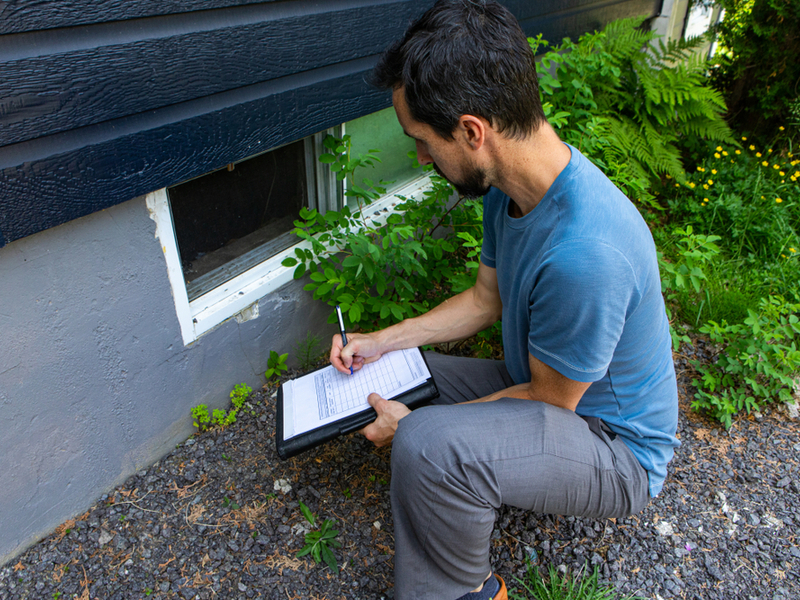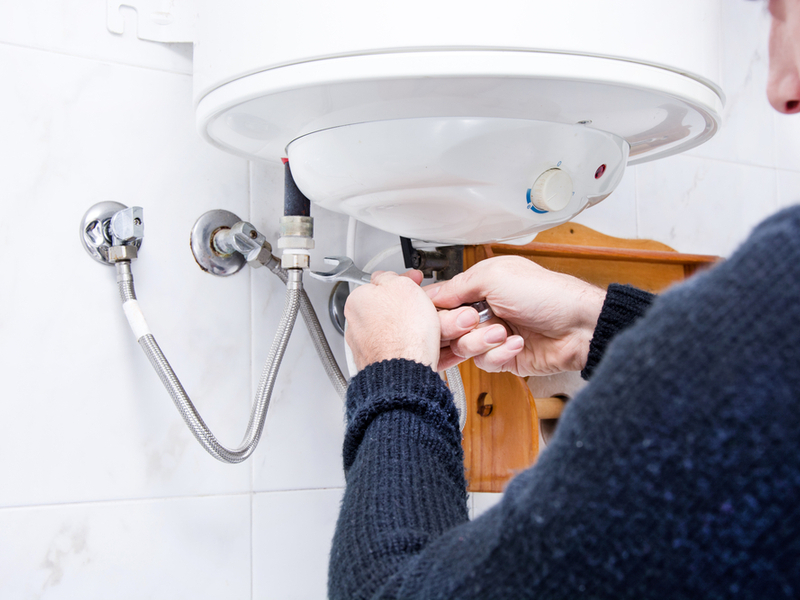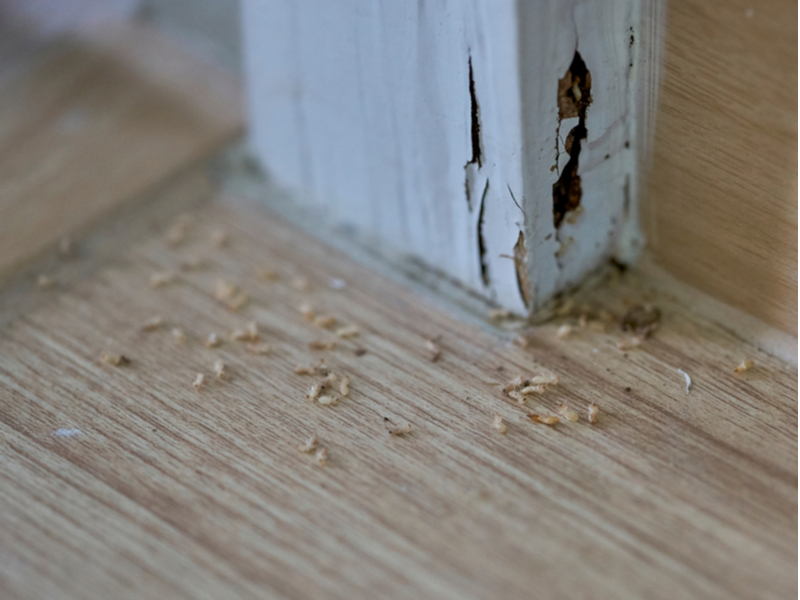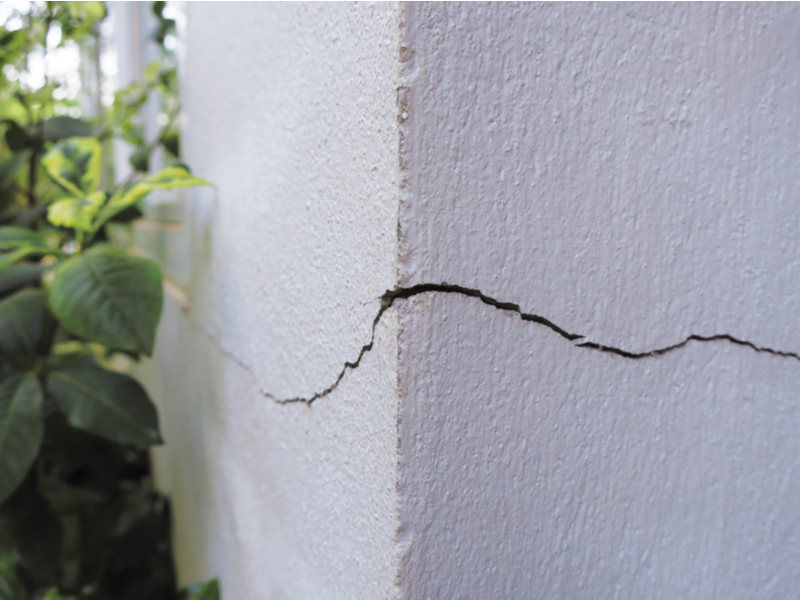The Complete Guide to Home Inspections
You're almost a homeowner—but first, it's time for an inspection

You're almost a homeowner—but first, it's time for an inspection

Getting a home inspection is a vital part of the home buying process, but it can be very nerve wracking—whether you’re the seller, hoping that your home passes with flying colors, or a new buyer nervous that the property you’re excited about could be hiding faults.

A professional home inspection is when a home inspector comes to assess the condition of a house, apartment, or other property. You can’t do your own home inspection—it needs to be done by a professional.
It’s intended to give a potential buyer the full picture of a house’s condition. An inspection specifically assesses the structural condition of a home rather than its design features. For example, if a home looks nice from the outside but is in bad shape structurally, the home inspector will let you know what kind of repairs are necessary.
Inspections help give a full and objective picture of the state of a home. The inspector will assess factors like structural stability, plumbing systems, electrical systems, and whether there are any leaks, mold, or infestations. It’s not about the way the home looks, but how safe it is to live in, so the home inspector probes beyond the home’s appearance.
The inspector investigates every part of the home from top to bottom, including the crawl space, gutters, and HVAC system. It usually takes about two to four hours and costs between $200 and $500, depending on the location and size of your home. Some home inspectors also check for asbestos and run radon testing.

A home inspection usually takes place within seven to 14 days after the purchase contract is accepted, but before you close on the sale. And inspections aren’t just for older properties, or ones that might harbor obvious problems—even a brand-new home might need a home inspection.
If you’re planning to put your home on the market, you can also get your own home inspection before listing. That way you’ll be aware of anything you’ll need to fix to make your home sale go smoothly.
If you’re the buyer, it’s best to have a home inspector lined up before accepting the contract, to make things as seamless and efficient as possible. If you don’t complete the inspection before the closing date, you won’t be able to back out the deal if the report turns up unexpected safety issues.
It’s typically the buyer’s responsibility to arrange home inspection services and to pay the home inspection cost. As with many things, word-of-mouth may be your best bet. Ask your friends, family, or real estate agent for recommendations.
One good rule of thumb: Look for someone who specializes in home inspections and is either a member of the American Society of Home Inspectors (ASHI), or is certified by the International Association of Certified Home Inspectors (InterNACHI).
No matter how nice they may be, you probably don’t want to hire a home inspector unless they have:

If you’re the homebuyer, there are a few things you’ll want to do before the inspection:
And if you’d like a complete guide, check out our home inspection checklist to make sure you cover all the essentials!
For sellers, there’s a lot more that can be done in advance of an inspection. Although the inspector is looking for structural and safety issues, it’s still worth it to tidy up, remove clutter, and replace dead light bulbs. If your house looks neglected, the inspector and the buyer are more likely to assume that it hasn’t been maintained properly, either. Hey, first impressions matter.
Look for any small issues that you can fix, like repairing broken windows and screens, replacing air filters in your air conditioning or heating system, and cleaning up any water damage, even if it’s from an old leak that was fixed long ago.
When it comes to the inspection itself, the seller’s job is to get out of the way. Usually only the inspector, the buyer, and the realtor are present at the home inspection.
Some issues turned up on a home inspection are serious enough that they could jeopardize your entire home sale. Here’s what buyers should be on the lookout for—and what sellers should take care of before listing their homes.

Buyers, even if you’ve made an offer on a house and had it approved, you’re still legally entitled to back out of the deal if the house has serious problems, like a pest infestation.
Sellers, take note that buyers will run for the hills if your house is infested, so if there’s any sign of termites, bed bugs, or other pests, hire a professional exterminator before the inspection.
Sellers should check for and replace damaged shingles and flashing, and re-caulk the points where ventilation pipes enter the roof.
For buyers, minor roofing issues can be a concern, but you might decide to go ahead with the deal regardless (perhaps in exchange for a lower price).

You’re unlikely to be able to sell a home that has serious foundation issues, so deal with them before you put your home on the market. If your home has structural flaws, hire an engineer to assess them and estimate the costs ahead of time.
Buyers should remember that traditionally, structural issues are dealt with by the seller, so it shouldn’t be up to you to fix them. However, finding out that the home you want to buy has serious foundation or structural problems is often a dealbreaker.
You can fix minor issues yourself, like filling in cracks with epoxy or silicone caulk, sealing the exterior foundation, and making sure all windows and doors can open and close without sticking.
Plumbing and sewer line issues can bedevil your home if you don’t nip them in the bud. If your pipes are several decades old, consider replacing them with modern piping that uses better materials. You should at least fix any visible leaks and unclog your gutters and drains.
A furnace that’s close to death could push away buyers. If your furnace is on its last legs, consider replacing it before the inspection. If you’re the one buying a house that’s going to need a new furnace, consider how much that’s going to cost you—and whether to ask the seller to lower the price accordingly.
Many older houses have problematic electrical wiring. Have an electrician come to inspect your outlets, junction boxes, and electrical panel, and fix and replace any that look problematic. Buyers might not want to torpedo the deal for the sake of some worn-out electrics, but they could ask the seller to fix the issue before the sale goes through.

It usually takes a few days for the inspection company to send the home inspection report. Unless the seller also paid part of the costs, or the buyer chooses to share it, the report is only sent to the buyers.
If you’re the buyer, you’ll need to read the report carefully, and you might need to discuss the contents with your real estate agent and/or lawyer. Experts recommend that you focus on major defects (after all, you’re not likely to find the perfect, flaw-free property). Find out how much it costs to fix any issues, and possibly even get some quotes from contractors.
Real estate contracts include a contingency clause that allows the buyer to cancel the deal if the report throws up serious safety issues. If that happens, you’ll need to do some serious thinking.
If the report surfaces major issues or anything unexpected, both buyers and sellers might need to negotiate so that the deal can proceed.
Some defects are historically the seller’s responsibility to deal with, like structural problems and infestations. Others are up for negotiation. The seller might agree to lower the sale price in exchange for leaving the buyers to fix minor defects, or buyers might insist that the seller fix them before the transaction happens.
Whether you’re selling your property or buying a new home, you want to do everything you can to keep it in tiptop condition. There’s no substitute for regular maintenance and an annual survey of your home for any potential issues, but that doesn’t stop the unexpected from cropping up.
That’s when you’ll be glad to have Lemonade Homeowners insurance, which steps in when you need it most. If your home or property gets damaged by extreme weather, vandalism, theft, or a range of other unfortunate occurrences—Lemonade homeowners insurance is there for you. Click below to get your quote now.
A few quick words, because we <3 our lawyers: This post is general in nature, and any statement in it doesn’t alter the terms, conditions, exclusions, or limitations of policies issued by Lemonade, which differ according to your state of residence. You’re encouraged to discuss your specific circumstances with your own professional advisors. The purpose of this post is merely to provide you with info and insights you can use to make such discussions more productive! Naturally, all comments by, or references to, third parties represent their own views, and Lemonade assumes no responsibility for them. Coverage and discounts may not be available in all states.
Please note: Lemonade articles and other editorial content are meant for educational purposes only, and should not be relied upon instead of professional legal, insurance or financial advice. The content of these educational articles does not alter the terms, conditions, exclusions, or limitations of policies issued by Lemonade, which differ according to your state of residence. While we regularly review previously published content to ensure it is accurate and up-to-date, there may be instances in which legal conditions or policy details have changed since publication. Any hypothetical examples used in Lemonade editorial content are purely expositional. Hypothetical examples do not alter or bind Lemonade to any application of your insurance policy to the particular facts and circumstances of any actual claim.